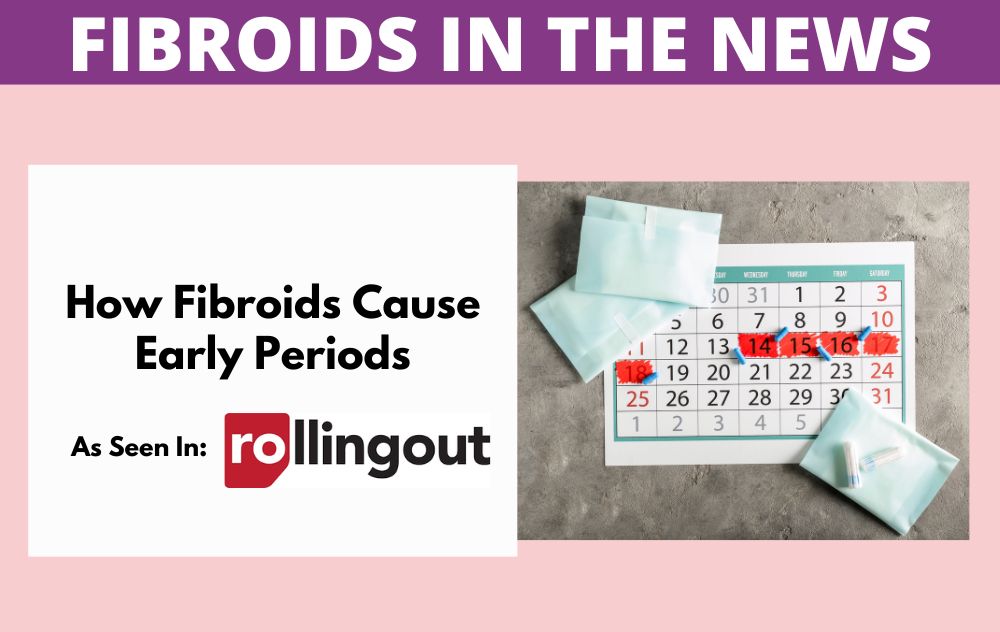
Getting your period earlier than expected isn’t just an inconvenience, it could be a sign that something more is going on with your health. Rolling Out recently reported that while various factors can influence menstrual cycle timing, one often overlooked cause is uterine fibroids.
How Fibroids Can Cause Early Periods
Uterine fibroids are noncancerous growth in or on the uterus that can significantly impact the menstrual cycle. Depending on their size and location, fibroids may cause heavier or prolonged bleeding, irregular cycles, including early periods. For most women, menstruation that arrives several days before their expected date could be considered early. However, what’s “early” for one woman might be normal for another, making it important to track your period and learn your cycle habits.
When fibroids grow inside the uterine lining or press against the uterus, they can trigger shredding earlier than expected. This disruption can lead to unpredictable cycle patterns, making it difficult for women with fibroids to track their periods accurately.
Hormonal imbalances caused by fibroids may also contribute to early bleeding. Estrogen and progesterone fluctuation, which regulate the menstrual cycle, can be thrown off by fibroid growth, leading to unexpected changed in period timing.
Women experiencing frequent early periods should consider fibroids as a potential cause, especially if accompanied by symptoms like pelvic pain, bloating, or heavy bleeding.
Other Causes of Early Periods
While fibroids are a common reason for early periods, several other conditions and lifestyle factors can also cause early periods, including:
- Stress: High stress levels can interfere with hormone regulation, leading to menstrual changes.
- Diet and Nutrition: Nutritional deficiencies or sudden changes in weight can impact cycle timing.
- Intense Exercise: Excessive physical activity can disrupt hormonal balance and lead to irregular bleeding.
- Health Conditions: Polycystic ovary syndrome (PCOS), thyroid disorders, and perimenopause can also affect the menstrual cycle.
- Medications: Hormonal contraceptives and other medications may alter period timing.
Resources for Women’s Health
The Fibroid Fighters Foundation is a national non-profit organization dedicated to raising awareness, providing support, advocating for improved healthcare options, and empowering women to take control of their health when facing fibroids.
For more information and resources about uterine fibroids, visit Fibroid Fighter’s resource page, call (855) 455-5262, or email us at [email protected].
For the latest news on women’s health, follow us on www.instagram.com/fibroidfighters.
To read the full article on what causes early periods, click here.







